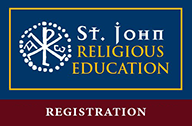Bulletins
March 20, 2016
Download the Bulletin as a PDFCardinal Sarah article l’Osservatore Romano entitled “Silent Action of the Heart”, continues to concept of the priest and the people facing the same direction during prayers of the Mass that are directed to God the Father. He writes:
Of course it is understood that there are other parts of the Mass in which the priest, acting in persona Christi Capitis, enters into nuptial dialogue with the assembly. But this face-to-face has no other purpose than to lead to a tete-à-tete with God, which, through the grace of the Holy Spirit, will become a heart-to-heart. The Council thus proposes additional means to favor participation: “acclamations, responses, psalmody, antiphons and songs, as well as...actions, gestures, and bodily attitudes” (§30).
A hasty and all-too-human reading of the Constitution has led to the conclusion that the faithful must be kept constantly busy. The contemporary Western way of thinking, shaped by technology and dazzled by the media, has wished to turn the liturgy into a lucrative production. In this spirit, many have tried to make the celebrations festive. Prompted by pastoral motives, liturgical ministers sometimes stage celebrations into which elements of worldly entertainment are introduced. Have we not witnessed a proliferation of testimonials, acts, and applause? It is imagined that this will foster the participation of the faithful, when in fact it reduces the liturgy to a human plaything.
“Silence is not a virtue, noise is not a sin, it is true,” says Thomas Merton, “but the turmoil and confusion and constant noise of modern society [or of some African Eucharistic liturgies] are the expression of the ambiance of its greatest sins—its godlessness, its despair. A world of propaganda, of endless argument, vituperation, criticism, or simply of chatter, is a world without anything to live for.... Mass becomes racket and confusion; prayers—an exterior or interior noise” (Thomas Merton, The Sign of Jonas [San Diego: Harcourt, Inc., 1953, 1981], passim).
We run the real risk of leaving no room for God in our celebrations, falling into the temptation of the Israelites in the desert. They sought to create a cult of worship limited to their own measure and reach, and let us not forget that they ended up prostrate before the idol of the golden calf.
The hour has come to listen to the Council. The liturgy is “above all things the worship of the divine majesty” (§33). It can form and teach us only insofar as it is completely ordered to divine worship and the glorification of God.
God bless you!
Fr. Christopher J. Pollard



